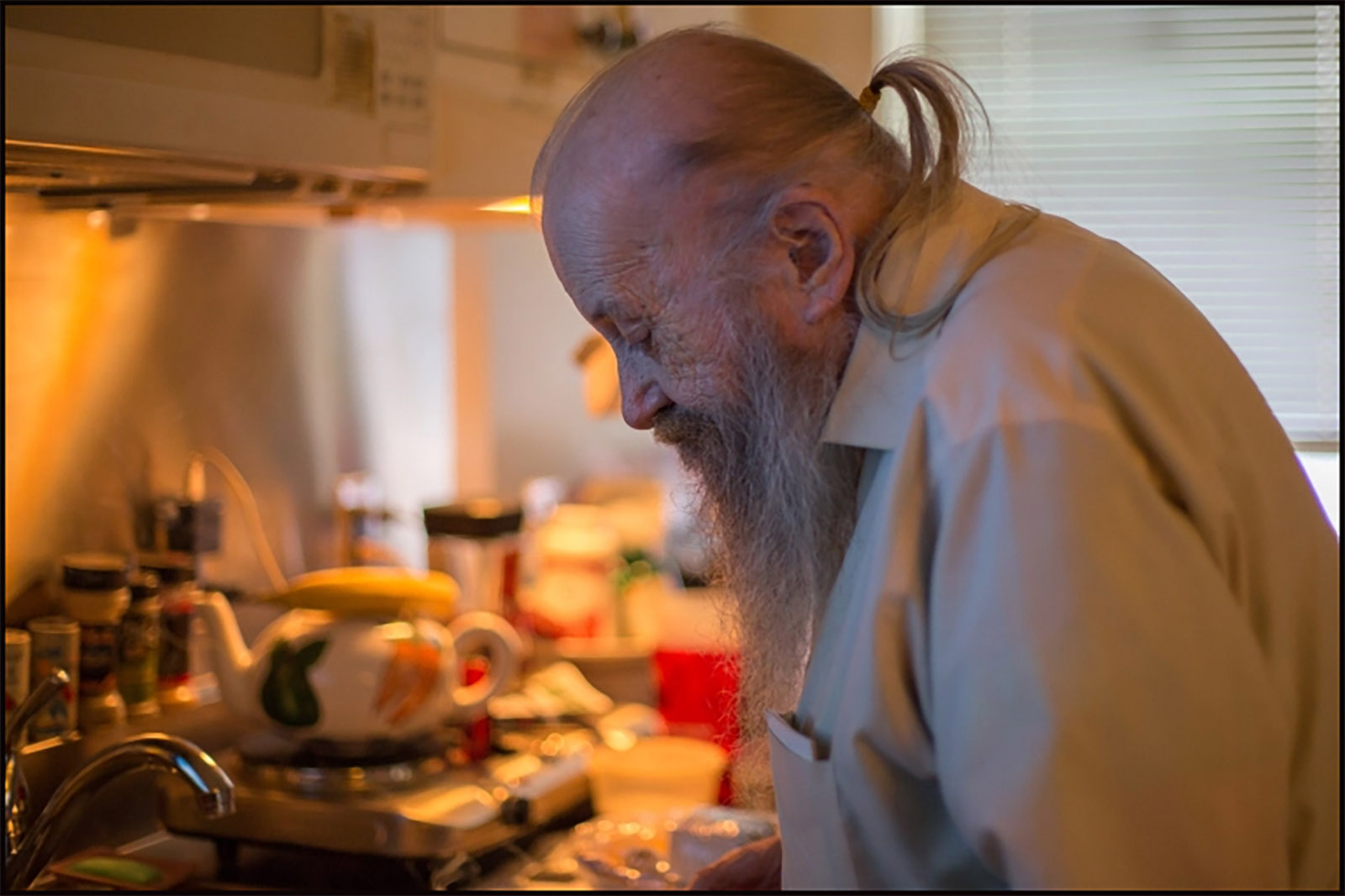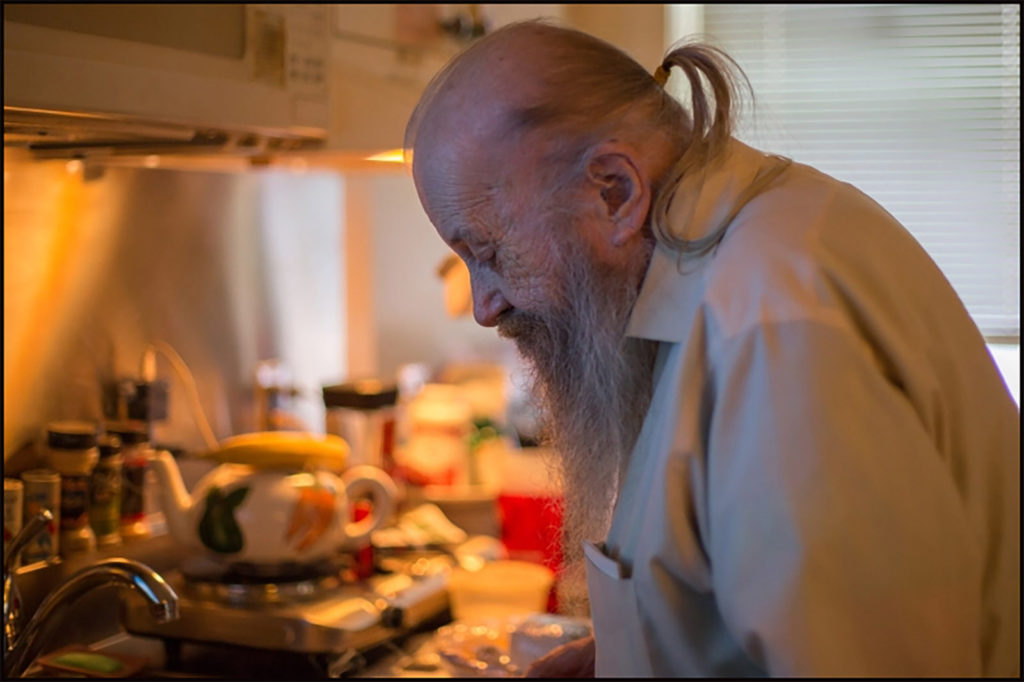
Chloé Hecketsweiler, a 2016-17 KSJ fellow, specializes in the pharmaceutical and life sciences industries for the Paris-based newspaper Le Monde. So Meals on Wheels, the program that provides meals at home to more than 2.4 million seniors in the U.S. each year, is not exactly on her beat.

But when she read that the Trump administration’s budget blueprint called for deep cuts to nonprofits like Meals on Wheels — which receives 35 percent of its funding from the federal government — she packed up a camera and a notebook and hit the road.
“As a photojournalism student at Boston University,” Chloé says, “I joined a Meals on Wheels driver on his four-hour round in Cambridge and Somerville. I met people with various kinds of physical and mental disabilities who are not able to shop or cook. On March 31, I published a short photo essay featuring some of the persons benefiting from the program who agreed to share their experience with me.”
She met people like James Lynch, 72, above, who lives by himself in a studio with a tiny kitchenette and doesn’t cook much. He is recovering from cancer and is still under heavy medication. Without Meals on Wheels, he told her, “I wouldn’t be alive.”
You can see the photo essay here.
Maura O’Connor’s book, “Resurrection Science: Conservation, De-extinction, and the Precarious Future of Wild Things,” is reviewed in the April 20 issue of The New York Review of Books.
The reviewer, Tim Flannery, a noted Australian scientist and environmentalist, writes that “‘Resurrection Science’ demonstrates unequivocally that the Anthropocene has already dawned, and that we are ill equipped to deal with its consequences. There is no doubt that we humans have now crossed a technological Rubicon, and at some time in the future extinct species will once again be breathing and interacting with other living things, in zoos if not in nature.”





Leave a Reply